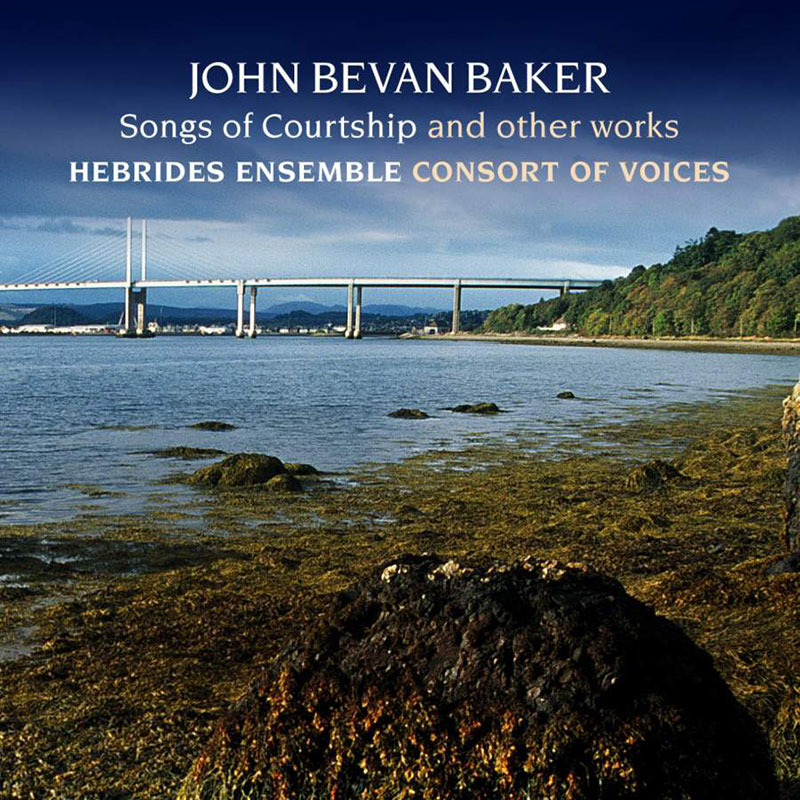Logowanie
Dziś nikt już tak genialnie nie jazzuje!
Bobby Hutcherson, Joe Sample
San Francisco
SHM-CD/SACD - NOWY FORMAT - DŻWIĘK TAK CZYSTY, JAK Z CZASU WIELKIEGO WYBUCHU!
Wayne Shorter, Freddie Hubbard, Herbie Hancock, Ron Carter, Elvin Jones
Speak no evil
UHQCD - dotknij Oryginału - MQA (Master Quality Authenticated)
Chesky! Niezmiennie perfekcyjny
Winylowy niezbędnik
ClearAudio
Double Matrix Professional - Sonic
najbardziej inteligentna i skuteczna pralka do płyt winylowych wszelkiego typu - całkowicie automatyczna
John Bevan Baker, Hebrides Ensemble
Songs of Courtship
- Hebrides Ensemble - orchestra
- John Bevan Baker
(...) Pierwszy utwór -Songs of Courtship - to 13. częściowy cykl pieśni opartych na starochińskiej poezji autorstwa Mao Shih pochodzącej z VII w. p.n.e. Następnie mamy drobne utwory kameralne na różne składy instrumentalne, a płytę kończy kantata do tekstu XV-wiecznego poety szkockiego, Williama Dunbara. Dzięki temu albumowi moż¬na się przekonać, że twórczość Bakera, choć nowoczesna, po¬wstała dla szerokiej rzeszy melomanów, niekoniecznie fascynujących się awangardą. Jednocześnie słychać, że wykonawcy podeszli do nagrania z ogromnym entuzjazmem, interpretując twórczość Bakera perfekcyjnie. Oto muzyka współczesna warta odkrycia. z recenzji MUZYKA21 ----------------------------- Linn Records is delighted to present the world premiere recording of John Bevan Baker's Songs of Courtship, performed by the renowned Hebrides Ensemble and Consort of Voices. The disc represents a unique opportunity for listeners to explore fascinating and uncharted waters of twentieth-century British music. Songs of Courtship were set to music by Bevan Baker in 1992 for the Black Isle Singers. The poems, written by Mao Shih in the 7th century BC, were translated from the Ancient Chinese in 1946 by Arthur Waley. John loved them and maintained that they had "a simple directness which could have been written yesterday". He wrote them as a contrasting, companion piece to the Brahms Lieberslieder Waltzern in a programme first performed by the Black Isle Singers in May 1992 in Fortrose Academy. The courtship songs, richly imaginative, vary greatly in metre and in their treatment of the enigmatic oriental lyrics, some being lightfooted, some more robust, always rhythmically challenging. The "Wedding Song" is a triumphant, rejoicing finale. ============= John Bevan Baker Born in Staines, Middlesex, Bevan Baker drew his musical influences from a lifetime of music, starting at the Royal College of Music where he studied with Ralph Vaughan Williams and Gordon Jacob. He was also assistant organist at Westminster Abbey and a teacher at the Abbey's Choir School, before moving to Aberdeen, where he taught at Robert Gordon's College, and Glasgow, where he spent a number of years before moving to Fortrose. Alongside his strong commitment to community arts and education, he wrote music for the Scottish Chamber Orchestra, the Hebrides Ensemble and his son-in-law, the cellist William Conway. His last work, an opera entitled The Seer, was given its posthumous premiere in 1996.


































